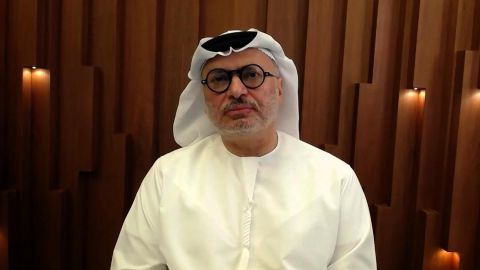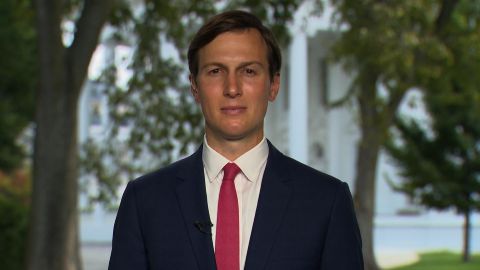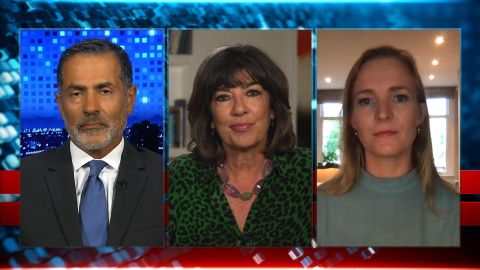Read Transcript EXPAND
CHRISTIANE AMANPOUR: So, look, 24 hours after the announcement of this landmark peace deal between Israel and the United Arab Emirates, I just want to ask specifically what precisely, you know, your administration did. I mean, you know obviously better than I do that this has been in the works for at least the last 10 years between the parties and, you know, with the help of previous U.S. administrations. Can you tell us how and why it happened now?
JARED KUSHNER, SENIOR WHITE HOUSE ADVISER TO PRESIDENT TRUMP: The first thing President Trump did was he went to Riyadh in 2017, he assembled the leaders of the 54 Muslim countries and said, guys, we need to be thinking about things differently. We need to solve these problems together and we need to bring the regions together around common solutions and in a new way. Since then, we’ve seen a lot of changes. We’ve seen Israel become closer with the Arab countries, we’ve rolled back a lot of Iran’s aggression in the region, terminated the really flawed Iran deal, we’ve taken back the physical caliphate of ISIS and we’ve done a lot of work to counter financing of terrorism and to fight the long-term battle against extremism through counterextremism centers by fighting the battle online. So, I think that President Trump was able to build the trust back with all the region allies that America had and to lay out a strategy and then we’ve worked very closely together over the last years to execute that strategy, culminating in the first peach agreement in the region in the last 26 years. So, again, there’s a lot of problems that we’ve had in the Middle East overtime, but very politicians and leaders have been able to create the breakthrough that President Trump was able to get yesterday.
AMANPOUR: So, obviously, this is progress in the region. And specifically, on an issue that you and I spoke about when you unveiled the Trump administration peace plan for the region. You remember one of the first questions I asked you was, will Prime Minister Netanyahu be annexing the West Bank as was provided for, because he had said that, and you said, no. No, we don’t expect that, that shouldn’t happen. It’s no secret that you did not want that to happen. Is one of the side benefits, or the side benefit of this deal the announcement that that annexation will be suspended by Israel?
KUSHNER: So, politics are messy, and in the Middle East if there was an elegant solution to solve all these problems, they would have been solved a long time ago. And so, you have a lot of different parties that believe in a lot of different things. But ultimately, was happened here was that leaders came together, great leaders like Prime Minister Netanyahu, the crown prince, Mohammed bin Zayed, and President Trump, and they were able to put what are the interest of the people, the region and the world ahead of different, maybe, things that would have been good in the short-term but less help in the long-term. So, that’s why we’re able to get to this normalization and peace which facilitate great trade between the United Arab Emirates and Israel that facilitate exchanges in technology, health care, tourism. A lot of Muslims throughout the world don’t believe that they’re able to visit the Al-Aqsa Mosque because their countries don’t have diplomatic relations and they can’t fly into Tel Aviv and then go visit the mosque.
About This Episode EXPAND
Christiane speaks with Jared Kushner, then with the UAE’s minister of state for foreign affairs, about the new Israel-UAE peace plan. She also speaks with Vali Nasr and Marietje Schaake about U.S. foreign policy on a larger scale.
LEARN MORE


